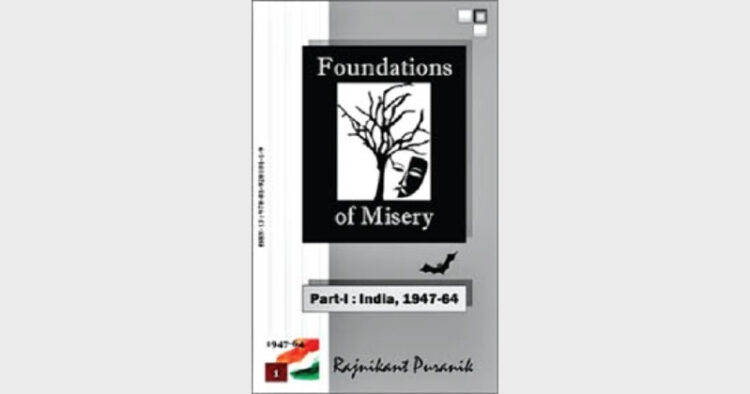There is much that is not commonly known about the shocking aspects of the 1962 India-China War, so shocking indeed that S Gopal, Nehru's official biographer, was constrained to comment: “Things went so wrong that had they not happened it would have been difficult to believe them.” The Henderson-Brooks report covered only the limited aspects their authors were tasked with. The book “Foundations of Misery” by Rajnikant Puranik in its chapter “Himalayan Misadventure” details all the aspects of that avoidable war. We are serialising that chapter.
On October 12, 1962, Nehru proclaimed India's intention to drive the Chinese out of areas India claimed…If Nehru had declared his intention to attack, then the Chinese were not going to wait to be attacked…
“On October 20, the Chinese launched a pre-emptive offensive all along the borders, overwhelming the feeble—but, in this first instance, determined—resistance of the Indian troops and advancing some distance in the eastern sector. On October 24, Beijing offered a ceasefire and Chinese withdrawal on the condition that India agree to open negotiations: Nehru refused the offer even before the text was officially received. Both sides built up over the next three weeks, and the Indians launched a local counterattack on November 15, arousing in India fresh expectations of total victory…
“The Chinese then renewed their offensive. Now many units of the once crack Indian 4th Division dissolved into rout without giving battle and, by November 20, there was no organised Indian resistance anywhere in the disputed territories. On that day, Beijing announced a unilateral ceasefire and intention to withdraw its forces: Nehru, this time, tacitly accepted.”
Why Fix the Borders Unilaterally?
Nehru did not take the fair and reasonable steps that India should have taken after independence, as were stated earlier when we discussed “What should have been done post-Independence”. Instead, Nehru aligned himself with the maximalist position of the British on the northern borders, whether or not agreed to by the other party or backed up by some incontrovertible historical agreements, declared them as Indian borders, and formulated a policy where no talks or discussions or negotiations were to be encouraged. Quite inexplicably, the anti-colonial, anti-imperialist Nehru stepped into the shoes of the colonialists and accepted their position on borders lock, stock and barrel.
Arnold Toynbee, the reputed British historian, had this to remark—as quoted by Neville Maxwell in his book India’s China War: “It is queer that lines drawn by British officials should have been consecrated as precious national assets of British Indian Empire’s non-British successor states. At the time when those lines were drawn the transaction produced no stir among the…Indian…subjects…If any of them paid any attention to what Durand and McMahon were doing, they will have written it off as just another move in the immoral game of power politics that the British Imperialists were playing in at the Indian tax-payers’ expense. The present consecration of these British-made lines as heirlooms in the successor states’ national heritages is an unexpected and unfortunate turn of History’s wheel.”
Strangely and effectively, Nehru acted even more British than the British, for he later directed that India make its physical presence felt even in the areas the British had left alone, knowing they had manipulated the maps!
Hadn’t Nehru once remarked, “I am the last Englishman to rule India!” So, he had to do something English-like! But, of course, although Nehru might have deluded himself, that was least English-like. British played those games and bullied others backed by their massive military might. Besides, the sufferers on both the sides were to be foreign nations—not their own country, the UK, which was thousands of miles away. India didn’t have the military muscle to play British. Besides, the potential consequences of Nehru’s stand affected India itself, not some distant foreign country. The British were cunning, not foolish.
Also, it is a historical fact that the British did take initiatives on many occasions with China and Tibet to firm up the borders and reach written agreements. Even if they unilaterally claimed certain territories, they showed keenness to get it agreed to by the other party. They didn’t just keep silent on the issue and deluded themselves that if the other party does not raise objections, whatever they had claimed could be assumed to have been implicitly agreed to. In sharp contrast, and quite un-English-like, what did that “last Englishman who ruled India” do? He counselled silence despite GS Bajpai’s advice. He took no initiative to have the borders settled, nor did he respond to the initiatives taken by the other party—China. Wise and mature diplomacy indeed!
(www.rkpbooks.com, www.facebook.com/fom.p1, rajnikantp.blogspot.in, twitter.com/Rajnikant_rkp, [email protected])














Comments